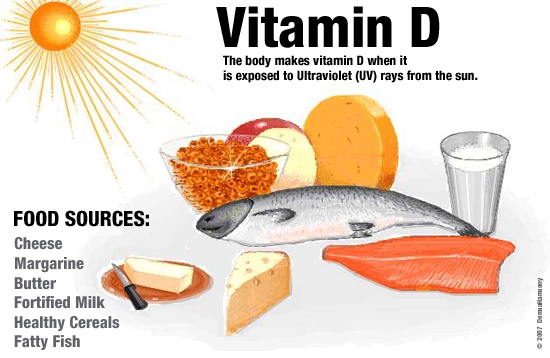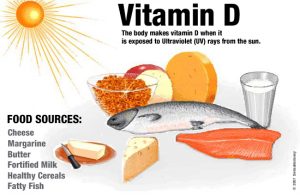There is a specific connection between vitamin D and weight loss, for individuals that are losing weight and keeping it off. In fact, a deficiency in vitamin D has been linked directly to weight gain. While vitamin D has long been recognized as an effective way to strengthen muscles, only recently has it been recognized as an essential component for better health.
Unlike all of the other vitamins, vitamin D needs to be manufactured inside the body. This usually happens by exposure to sunlight. However, many individuals that use sunscreen on a routine basis to prevent wrinkles also reduce their ability of their skin to take in vitamin D from sunlight, to be converted in the body. In addition, gaining sun exposure in late afternoon or early morning is usually at a time when the sunrays are too weak to naturally produce enough vitamin D.
Only recently has the deficiency in the vitamin has been recognized as the number one factor in weight gain. Because of that, many people are taking vitamin D as a supplement, to ensure that their body receives enough every day. This is important because the brain utilizes the vitamin as a way to stave off cravings and hunger, while pumping up the levels of beneficial mood elevating serotonin.
A Direct Link
Vitamin D and weight loss also show a direct link because the vitamin is required when the body absorbs essential weight loss nutrients, like calcium. When the body lacks enough calcium, it tends to ramp up fatty acid synthase, a body producing enzyme that has only one job – to convert calories directly into stored fat.
Recent studies of shown that obese women consuming 1200 milligrams of calcium every day lost an average of six times as much weight as women that did not take the calcium. This shows that consuming enough vitamin D-rich nutrients every day is an effective tool to minimize fat storage in the body, and generate fat burning thermogenesis to speed up weight loss.
The lack of vitamin D in the body tends to increase the risk of acquiring a variety of medical conditions. Some of these include cancer, hypertension, heart disease, obesity, autism, Crohn’s disease, multiple sclerosis, type II and type I diabetes, colds, flu and psoriasis. In fact, schizophrenia, Alzheimer’s disease, depression, migraines, fertility, seizures, macular degeneration, periodontal disease, cavities and muscle pain are also associated with low levels of vitamin D.
Optimal Levels
The optimal range for most individuals is between 50-70 NG/ML each day. Any natural body level of vitamin D in a range lower than 20 NL/ML is considered a serious deficiency. This dangerous level can significantly increase the potential of acquiring a variety of cancers and autoimmune diseases including rheumatoid arthritis and multiple sclerosis.
The connection between receiving adequate amounts of vitamin D and weight loss is important to both men and women. The sure way to optimize intake of vitamin D is through safe, adequate sun exposure. However, it can be taken as a vitamin D supplement, to ensure that the body is getting enough every day.

